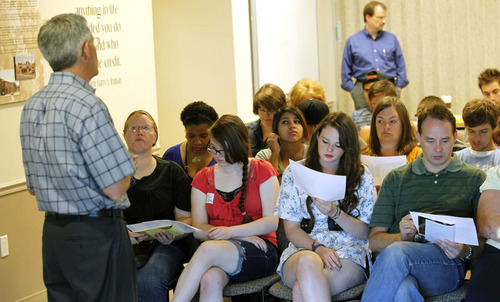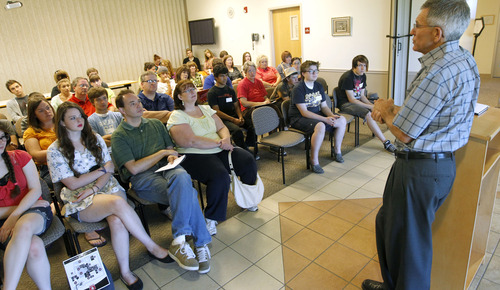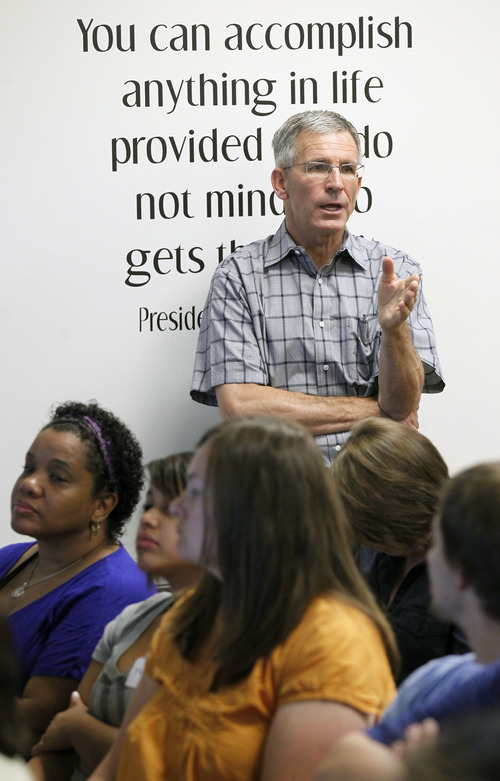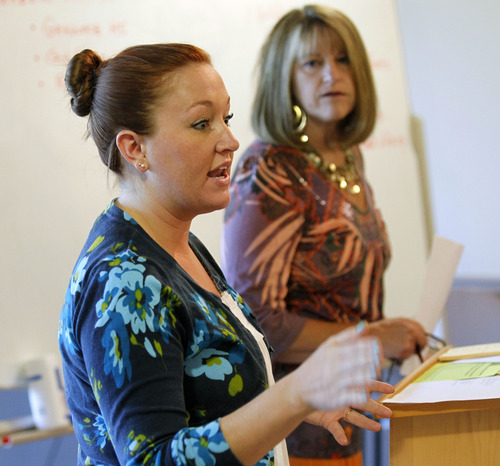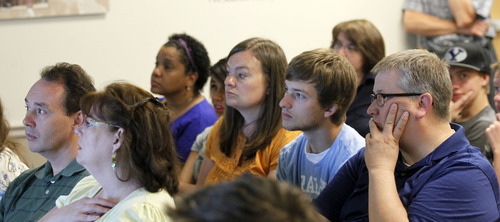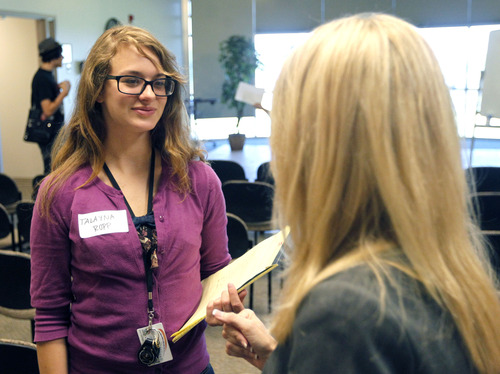This is an archived article that was published on sltrib.com in 2013, and information in the article may be outdated. It is provided only for personal research purposes and may not be reprinted.
Kaysville • Colby Sanders was lost at his high school.
"I feel like I'm going just to be there. I'm not really learning much," said the 16-year-old. "I'm just falling more and more behind."
With 30 or more students in a classroom, teachers and administrators don't seem to notice, said his mother, Lori Sanders. Her son took a medical leave from Layton High last year after an as-yet-undiagnosed condition prevented him from keeping traditional school hours.
"It's just frustrating," she said. "I hope he can catch up."
Next year, Colby Sanders plans to switch to Career Path High, a new charter school authorized by the Davis Applied Technology College in Kaysville. It's the second charter to be authorized by a higher education institution in the state, and it has 125 students planning to attend after its Sept. 4 opening.
Those students will be able to earn a professional certificate in fields from cosmetology to diesel mechanics before high school graduation. Their regular high school classes will be online, while the technical school classes will be taken at the college, where they will join adult students.
"No one says, 'I really want my kid to grow up to be a diesel technician,' " said Kevin Cummings, director of student services at Davis Applied Technology College. "But there are kids who graduate from high school with a diesel certificate and they're making $15 to $20 an hour."
Leaders say Career Path High's blended online and in-person model is unique for a technical school, created after the state Legislature allowed colleges and universities to authorize charter schools in 2010.
Will the new concept work? The research is somewhat mixed. A report released in June found, on average, charter school students in Utah learn less than their traditional peers.
But a separate study by the American Institutes for Research determined students at early college high schools from underrepresented groups are more likely to graduate from high school, enroll in college and earn a degree. The report looked at about 2,500 students, comparing a control group with those who took college courses while in high school as part of an initiative funded by the Bill and Melinda Gates Foundation.
For northern Utah students at a recent orientation for Career Path High, the nontraditional approach is worth a try.
"School just wasn't working for me, the kind of herd approach where everyone is the same," said 15-year-old Arthur Tucker. He flew through school, skipping the homework and acing the tests — in a traditional setting and online. "It kind of gets boring."
Tucker likes designing apps and programming robots, and plans to study information technology at Davis Applied Technology College. It sounds like Tucker will fit in with his older classmates. After a brief conversation, I.T. instructor AJ Hepler was impressed.
"I think you'll probably set a record for us with where you're at already," Hepler said.
Taking those classes will also be cheaper for Career Path students, who won't have to pay tuition and whose fees will be 75 percent less than those adults pay.
That's attractive for the Ropp family. Talayna Ropp, 16, loves baking bread and making alfredo pasta. She's always wanted to go to culinary school at the Davis ATC and when her father saw a notice about the new high school, she jumped on board.
"I don't like having a regular schedule," she said, "so this is good for me."
The concept for the school comes in part from Robyn Bagley, board chairwoman of Parents for Choice in Education, an advocacy group that supports alternatives to traditional public education. She also helped start the all-digital Mountain Heights Academy (formerly Open High School of Utah).
The school is "unique in the nation in being a charter school inside an applied technology college," said Bagley, founding board chairwoman at Career Path High. Like all of Utah's more than 90 charter schools, the school is publicly funded per pupil — about $5,900 per student per year in this case, Bagley said. The funding from the state should cover the Career Path budget, she said.
Davis Applied Technology College officials liked the idea because online learning allows students to move at their own pace through their high school courses and schedule around their technical college classes, said school director Jay Greaves. While some district high school students already attend the ATC, making up about 18 percent of the student body, it can be hard to schedule those classes around the regular school day.
With Career Path, "kids will really come out with job skills when they graduate," Greaves said. "It's not that we have anything against the traditional setting. This is just an enhanced and better way, I think."
Perhaps most important for students such as Colby Sanders, he said, guidance counselors will give students individual attention and help.
"You don't just flounder," Greaves said. "We don't let you get behind."
Twitter: @lwhitehurst


